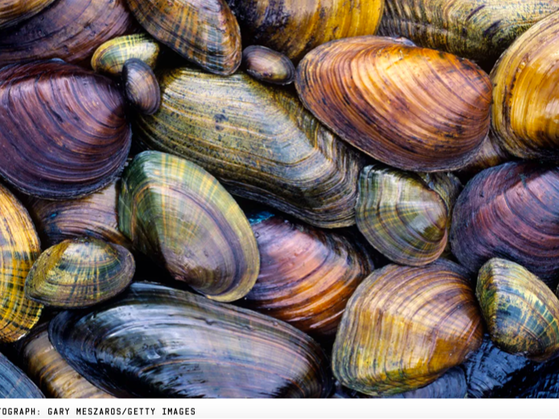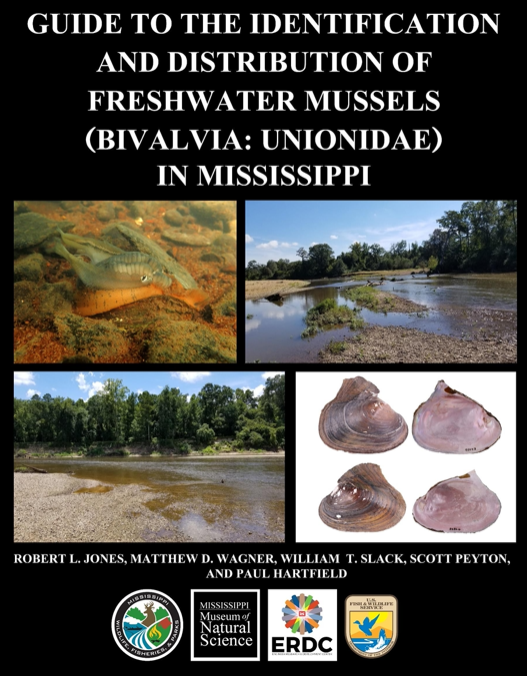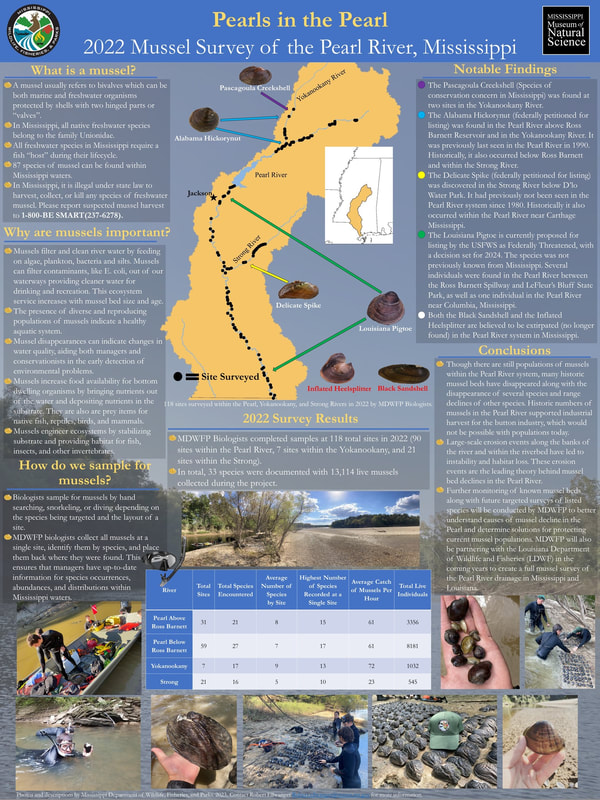Freshwater mussels

Did you know that:
-There are 39 species of freshwater mussels in the Pearl River drainage.
-A single freshwater mussel can filter more than 15 gallons of water in a day. (it is estimated that invasive zebra mussels filter the entire water volume of Lake Erie in less than one month)
-Mussels improve water quality by filtering out sediment, agricultural runoff, fecal bacteria and even man-made contaminants like pharmaceuticals, flame retardants, personal care products and heavy metals.
-The Pearl River is home to the inflated heelsplitter mussel, a federally listed species, found in the West Pearl River in Louisiana and, historically, near Jackson.
-For reproduction, mussel larvae attach to the gills or fins of a fish host to complete their life cycle to the juvenile stage. For many species of mussel, the host is limited to a single species of fish. The only known host species for our endangered inflated heelsplitter mussel is the freshwater drum.
-Female Pearl River map turtles have specialized head and jaw structures which enable them to crush mussel shells.
-In the 1930s, Pearl River mussels were collected for the button industry. One location reported collecting one ton of shell every four days.
-MDWFP regulations prohibit the take or killing of any freshwater mussel in the State of Mississippi. “all waters in the State of Mississippi are closed to commercial harvest of mussels.”
-Approximately 26% of Mississippi’s mussel species are listed as threatened or endangered by either the U.S. Fish and Wildlife Service (USFWS) or the MDWFP. The major factor responsible for the imperilment of freshwater mussels is the destruction and alteration of mussel habitats. Alteration of rivers and streams through dam construction and channelization changes stable riverine conditions to lake or other unstable conditions.
-There are 39 species of freshwater mussels in the Pearl River drainage.
-A single freshwater mussel can filter more than 15 gallons of water in a day. (it is estimated that invasive zebra mussels filter the entire water volume of Lake Erie in less than one month)
-Mussels improve water quality by filtering out sediment, agricultural runoff, fecal bacteria and even man-made contaminants like pharmaceuticals, flame retardants, personal care products and heavy metals.
-The Pearl River is home to the inflated heelsplitter mussel, a federally listed species, found in the West Pearl River in Louisiana and, historically, near Jackson.
-For reproduction, mussel larvae attach to the gills or fins of a fish host to complete their life cycle to the juvenile stage. For many species of mussel, the host is limited to a single species of fish. The only known host species for our endangered inflated heelsplitter mussel is the freshwater drum.
-Female Pearl River map turtles have specialized head and jaw structures which enable them to crush mussel shells.
-In the 1930s, Pearl River mussels were collected for the button industry. One location reported collecting one ton of shell every four days.
-MDWFP regulations prohibit the take or killing of any freshwater mussel in the State of Mississippi. “all waters in the State of Mississippi are closed to commercial harvest of mussels.”
-Approximately 26% of Mississippi’s mussel species are listed as threatened or endangered by either the U.S. Fish and Wildlife Service (USFWS) or the MDWFP. The major factor responsible for the imperilment of freshwater mussels is the destruction and alteration of mussel habitats. Alteration of rivers and streams through dam construction and channelization changes stable riverine conditions to lake or other unstable conditions.
In 2022, MDWFP biologists completed a mussel survey at 118 total sites (90 sites on the Pearl River, 7 sites within the Yokanookany, and 21 sites on the Strong River. In total 33 species were documented with 13, 114 live mussels collected during the project. Notably, several Louisiana pigtoe mussels, currently proposed for listing by the USFWS as Federally Threatened, were found in the Pearl River between the Ross Barnett Spillway and LeFleur's Bluff State Park, as well as one individual in the Pearl River near Columbia, MS.



